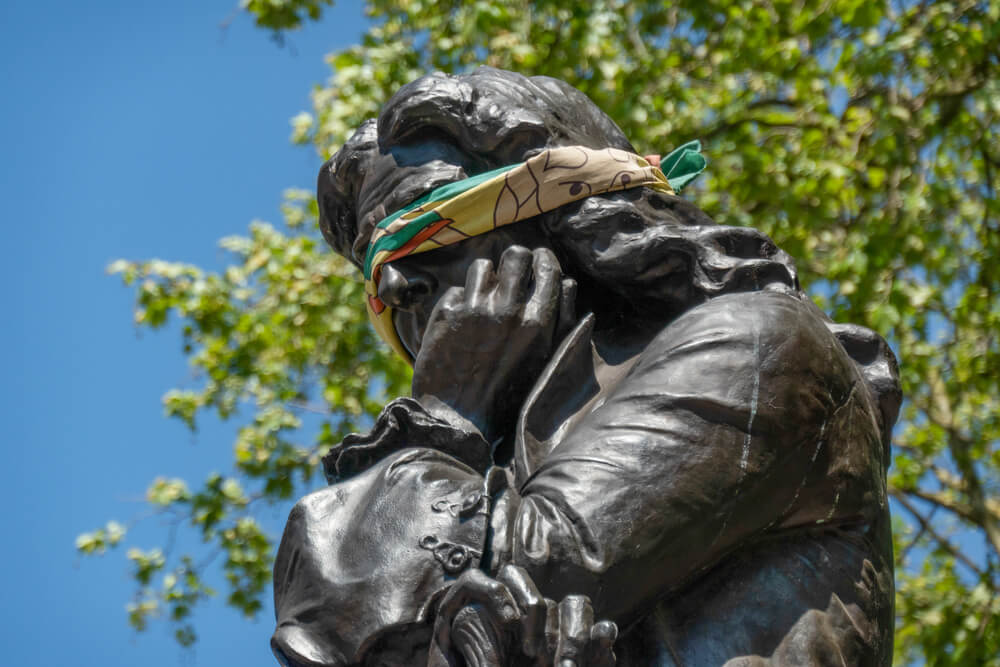History is fragile. It needs to be handled with care. The trouble is that it is inevitably viewed through the prism of today, which can cast the good as bad and the bad as good.
That is why those who would edit it, sanitize it or obscure it are, for the most part, vandals. It is in constant danger of being rewritten to accommodate current perceptions.
How has this worked? When Oscar Wilde was arrested on April 6, 1895, at the Cadogan Hotel, London, for “gross indecency” (homosexuality), he was widely denounced as a threat to everything of value and a danger to our morals. In New York, where several of his plays were packing in audiences, Wilde’s name was removed from the playbills, while the plays continued to run.
Today, those who would have him arrested would be arrested for hate speech. The prism has changed.
America’s great journalist H.L. Mencken has fallen into some disfavor because of notes in his private diaries that have been construed to be anti-Semitic and racist. But his genius is unassailable. If you doubt this, just read his work. Yet the National Press Club in Washington changed the name of its library to that of a minor benefactor because the great man in private diaries had entries that were construed to be anti-Semitic. You can find the offending sentences on the web and make your own decision about what he said to his diary in 1943.
A committee of the Council of the District of Columbia advanced a list of historical figures’ connections to slavery and oppression and recommended renaming dozens of public schools, parks and government buildings in the nation’s capital — including those named for George Washington, Thomas Jefferson and five other U.S. presidents. No one, it would seem, who drew breath at the time of the founding of the republic is safe from retrospective judgment and condemnation. Not even Benjamin Franklin, who told a Philadelphia matron that he had “given you a republic, if you can keep it.”
No historical figures, it would also seem, are safe from indictments leveled against them. Julius Caesar was a Roman imperialist. The French and the British should hate him. Should we therefore destroy statues of Caesar? Then we wouldn’t even know what he looked like.
English military and political leader Oliver Cromwell served as Lord Protector of the Commonwealth of England, Scotland and Ireland during the 1600s. But his actions in Ireland and Scotland were genocidal. He said of the luckless Irish at the Battle of Drogheda, “God made them as stubble to our swords.” Should his name and likeness be expunged from our public records? The Cromwell Road, one of the great thoroughfares of London would have to go. One shudders to think about the awfulness of Queen Victoria in this context.
History is dominated by great figures and they are a mixed lot. The new politically correct assessment of history extends into appending judgment of sex lives. Watch out John F. Kennedy, Martin Luther King Jr., and even Catherine the Great.
Sixty years ago, those who could’ve been censored and removed from public life would’ve included gays down through the centuries, from Alexander the Great to former Irish Prime Minister Leo Varadkar, who is also Muslim.
There is a lot of heavy lifting to be done if you’re going to measure the past against the values of the present.
This brings me to the difficult and contentious issue of the Confederacy and all those statues. Here, there is reason to respect the sensibilities of the African-American community and at least remove statues to museums. The Confederate flag has become an in-your-face statement of white racism and shouldn’t be part of the celebration of Southern culture. These symbols aren’t yet confined to history’s grave but are part of a struggle that isn’t settled.
Oxford University has decided to remove a statue of Cecil John Rhodes, and there is a move to change the name of Rhodes Scholarships to something else. Mind you, not to give up the money that he gave for the scholarship, together with huge gifts to the university.
Rhodes was an imperialist. He wanted Britain to rule from Cape Town to Cairo, but he wasn’t a monster. Ruthless in business, he introduced the first genuine open franchise in Cape Colony when he was prime minister. His sending of a column of police — they weren’t soldiers — into Zimbabwe ended the genocidal war between the Matabele and the Shona. But a white colony run by Whites for Whites resulted.
For me, names and statues record history. They aren’t celebrations of wrongdoing. I would’ve liked to have seen a statue of Stalin, the greatest monster of the 20th century, as he appeared to the Russian people. I think it is good when a small child asks in front of a statue, “Mom, who is that?”
History isn’t to be rewritten, but to be learned, otherwise we won’t know how we got here and what to avoid, as George Santayana pointed out.
Photo: May 6th 2020: Statue of Edward Colston with blindfold before it was taken down by protestors

 Follow
Follow
Leave a Reply